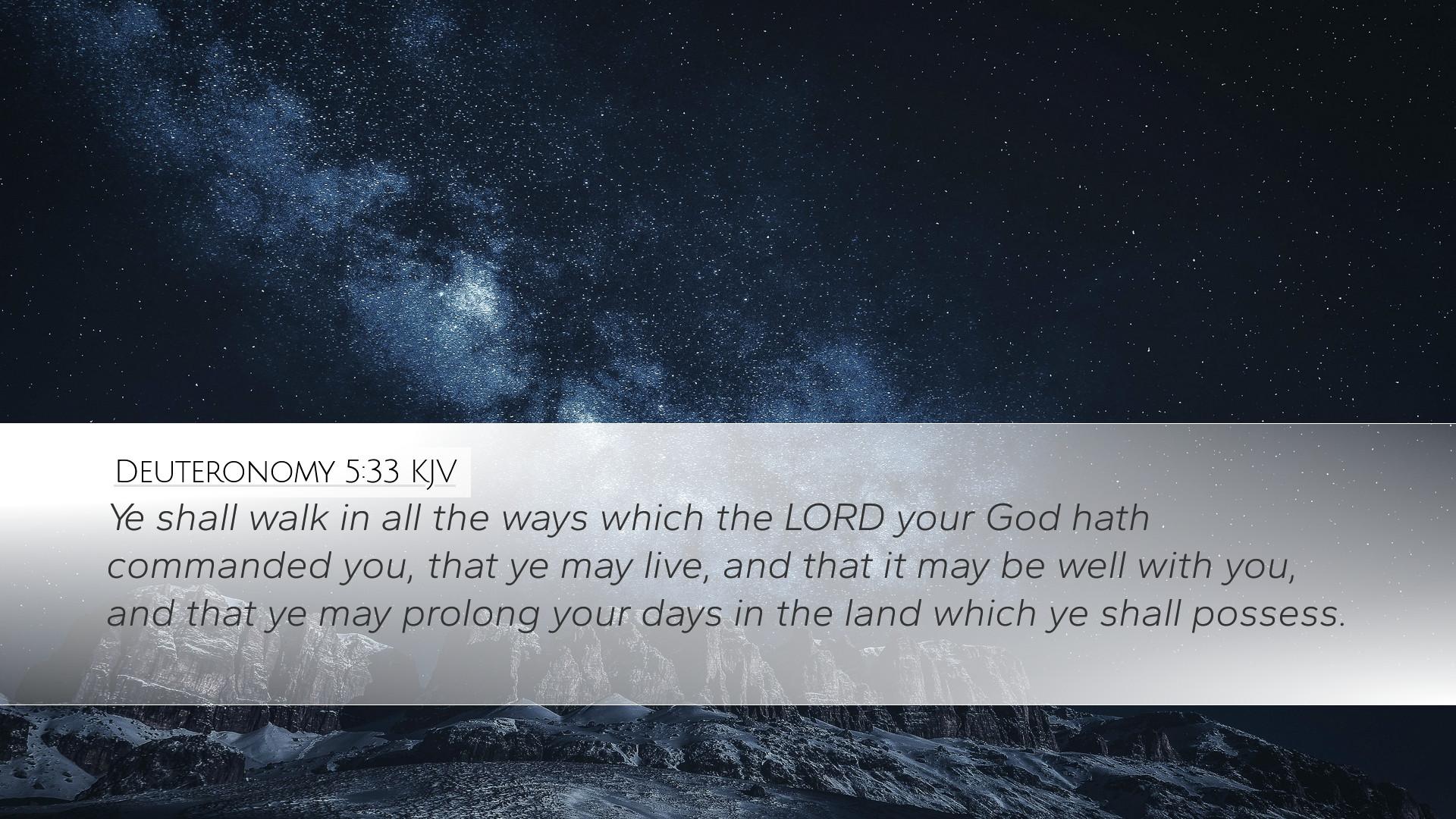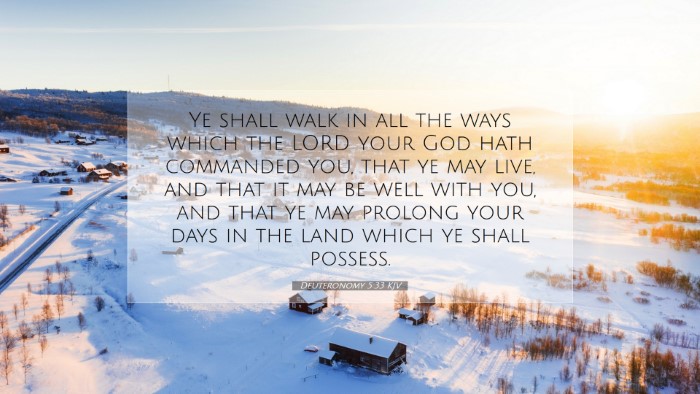Commentary on Deuteronomy 5:33
Deuteronomy 5:33 states: "Ye shall walk in all the ways which the LORD your God hath commanded you, that ye may live, and that it may be well with you, and that ye may prolong your days in the land which ye shall possess." This verse encapsulates a critical aspect of the relationship between the Israelites and their covenant God, emphasizing obedience and its consequential blessings.
Introduction
This commentary draws insights from established public domain commentaries, notably those of Matthew Henry, Albert Barnes, and Adam Clarke, to explore the theological significance and practical implications of Deuteronomy 5:33. The verse serves as a capstone to the reiteration of law and covenant blessings in Deuteronomy.
Exegesis of the Verse
In this verse, there are several key components that merit close examination:
- Obedience to God's Commandments: The command to "walk in all the ways" signifies a holistic obedience to God's law rather than selective adherence. This includes both moral and ceremonial laws given to Israel.
- Theological Basis for Obedience: The phrase "which the LORD your God hath commanded" highlights the authority of God behind these commandments. For the Israelites, their laws are God-given and thus demand response.
- Consequences of Obedience: The promise that "ye may live" underscores that life in its fullest sense is tied directly to the observance of God's statutes. This life extends beyond mere physical existence, encompassing spiritual vitality and peace.
- The Well-Being of the Community: "That it may be well with you" reflects a communal perspective, as obedience leads to societal flourishing and stability, not just individual well-being.
- Long Days in the Promised Land: The connection between prolonged days and possession of the land speaks to the covenantal promises made to the patriarchs. This is an invitation to consider their legacy in light of current obedience.
Theological Insights
According to Matthew Henry, the obedience called for in this verse is rooted in the nature of God as a covenant keeper and the nation of Israel as a collective entity bound to their Creator. Henry emphasizes that God's commandments are not arbitrary but are given for the Israelites' good, and obedience is fundamental to receiving God’s favor.
Albert Barnes notes that the expression "ye shall walk" indicates a lifestyle choice—one that should permeate daily living. Barnes asserts that walking in God's ways is not merely about external compliance but also involves an inner transformation and alignment with divine character.
Adam Clarke offers an eloquent reminder that while the promises of longevity and well-being relate to physical existence, they also metaphorically represent spiritual growth and spiritual heritage. Clarke illustrates how the principle of divine guidance leads to success and fulfillment in life’s endeavors.
Practical Applications
- Holistic Discipleship: Pastors and leaders are encouraged to cultivate a culture of holistic discipleship that emphasizes the necessity of following God's commandments in every facet of life.
- Community Engagement: The church is called to be an embodiment of God's commandments, promoting societal well-being, moral integrity, and justice as reflective of His nature.
- Long-Term Vision: The verse prompts leaders and congregations to maintain a long-term vision that aligns obedience with the unfolding plan of God—recognizing that present decisions impact future generations.
Conclusion
Deuteronomy 5:33 serves as a poignant reminder to embrace God's commandments with intentionality and commitment. Commentators like Henry, Barnes, and Clarke elucidate the depth of meaning behind the call to obedience, connecting it to both the spiritual and practical dimensions of life in covenant relationship with God. The understanding of this verse challenges believers to reflect on their daily walks and the collective witness of the church as they live out God's calling.


